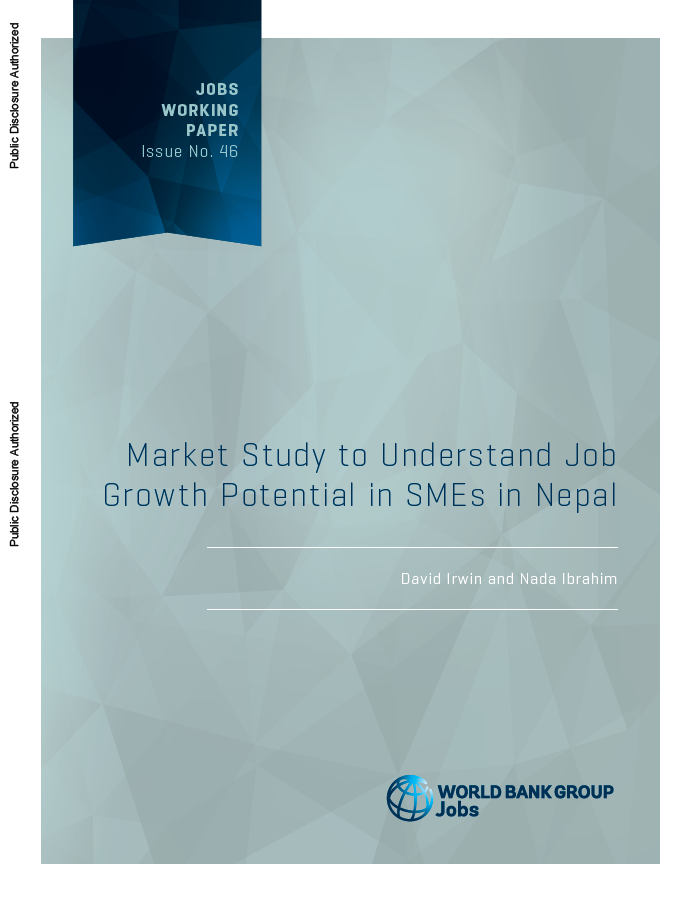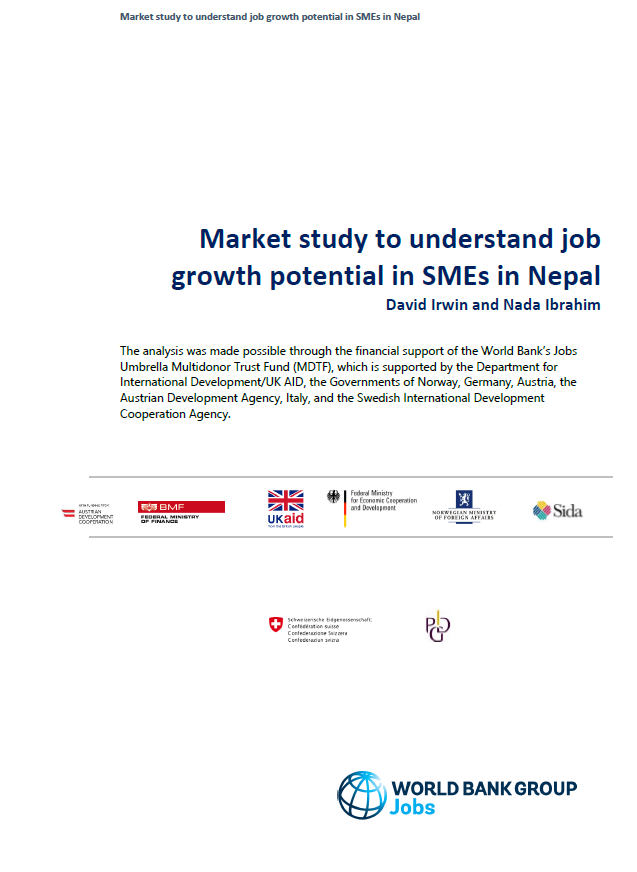Public policy reform
World Bank
- In 2007/8, David undertook a project around four states of Nigeria - Kano, Kaduna, Lagos and Calabar - to assess the level of public private dialogue and to make recommendations for how this could be improved.
- In 2017, working with Saana, David prepared a survey for use by the World Bank intended to survey women traders in some 40 countries to identify the constraints and barriers that they face. The survey was prepared, and then tested thruogh focus groups in Malawi and Zambia, and then tested further through undertaking a pilot survey in Kenya.
- In 2019, working with IMC Worldwide, David was team leader for a project in Nepal intended to assist the Bank to understand the small business ecosystem and the availability of support for small and growing businesses, as they aimed to put together a programme with the Government of Nepal intended to help firms to grow and, in particular, to create new jobs. The report is available on the World Bank website
Many thanks to you all for a tremendous effort that has yielded very interesting and well-documented findings [...] I am confident that at a minimum it will inform
better project design and more effective engagement with Government.

Elizabeth Ruppert Bulmer, Lead Economist, Jobs Group, Social Protection & Jobs, World Bank Group
- In 2020 and early 2021, working with IMC Worldwide, David was team leader for a project in Mozambique intended to assist the Bank to understand the small business ecosystem and the availability of support for small and growing businesses, as they explored the scope for implementing a business plan competition in partnership with the Government of Mozambique intended to help firms to grow and, in particular, to create new jobs. This research was severely interrupted by the covid19 health crisis and the team was diverted to undertake a different survey to assess the impact of covid on businesses in Mozambique.
Thank you for the good work, I am glad that we managed to get a nice and useful final report.

Federica Ricaldi, Economist, World Bank Group, Maputo


